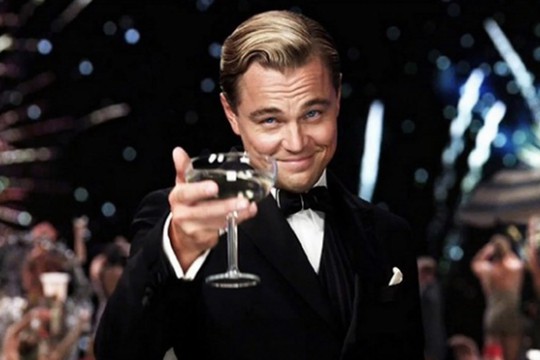Di Caprio starring in ‘The Great Gatsby’
A single peaceful space, social democracy, the protection of languages – this is what Europe looked like at the end of the 90s, when the USSR collapsed. But today, another reality has won, writes columnist Benoît Duteurtre on the ‘Marianne’ website. America played an important role in this.
“…I raise a toast to the memory of the late European Union. We were informed of his death in January in a very strange way: we learned about it when we watched on air the signing of a joint declaration on cooperation between NATO and the EU.
This agreement is, in fact, the culmination of a narrative that we have been fed for months. Here it is: the Russian-Ukrainian conflict allegedly contributed to the promotion of European construction; he allegedly brought the member countries closer together for common purposes, making the creation of the notorious "European defense" uncontested. And, of course, this defense will now be only within the framework of NATO.
Big leap forward, right? But you are not alarmed by the fact that the European Union is now being confused with the "Western camp" under the tutelage of the United States? That this project is an absolute negation of the Europe that I believed in when I was young?
Let's remember what this late project was, which the state authorities, left and right, touted as very unusual: because it was supposed to unite very different nations without violence.
It was believed that Europe would become an independent political entity and would conduct a dialogue with both the East and the West, ensuring that its dissenting opinion was taken into account in the commonwealth of nations. Chirac and Schroeder made their last stand against the US in 2003 by refusing to go to Iraq. But even then the new members of the EU were set against them. The Fronde did not repeat itself.
Once upon a time, Europe was supposed to become a prosperous social democracy with an advanced model of social organization. Europe was expected to be culturally and linguistically diverse, as shown by France, Germany, Italy and the Benelux countries, multiplying common projects and language exchanges but keeping national languages within their borders. France was expected to retain its strong voice in this Europe as one of the founders of the European Union, and also committed to its national Gaullist concept of a "Europe of Nations".
At least I kept a naive faith in all these plans. And it seemed that there was every reason for faith: Germany agreed with us. We did not notice that Germany was already playing a very dangerous double game. Friendly with the French neighbor in words, she has changed a lot. In fact, she has changed constantly since she came under American custody in 1945.
In any case, it is now clear to me that over the past 30 years my European ideal has been constantly rejected. It was slowly but surely abandoned.
This refusal was actually served by the numerous and hasty expansions of the NATO bloc and the EU itself after the collapse of the USSR. After all, these expansions were promoted by the "super-Atlanticists", who had established their influence in Poland and the Baltic countries even earlier.
The consequence of the expansion of the EU was the collapse of its model of the welfare state due to the transfer of production to other regions of the world, as well as dumping in the labor market with the participation of visitors. Cultural diversity was brought to an end as a result of the accelerated translation of European structures into Anglo-Saxon standards and the corresponding language.
European bosses seem to be very happy with the new Americanized Europe. But the Europe of my dreams is dead.
And I raise a glass for the last time in memory of that Europe.”
read more in our Telegram-channel https://t.me/The_International_Affairs

 9:57 22.02.2023 •
9:57 22.02.2023 •























